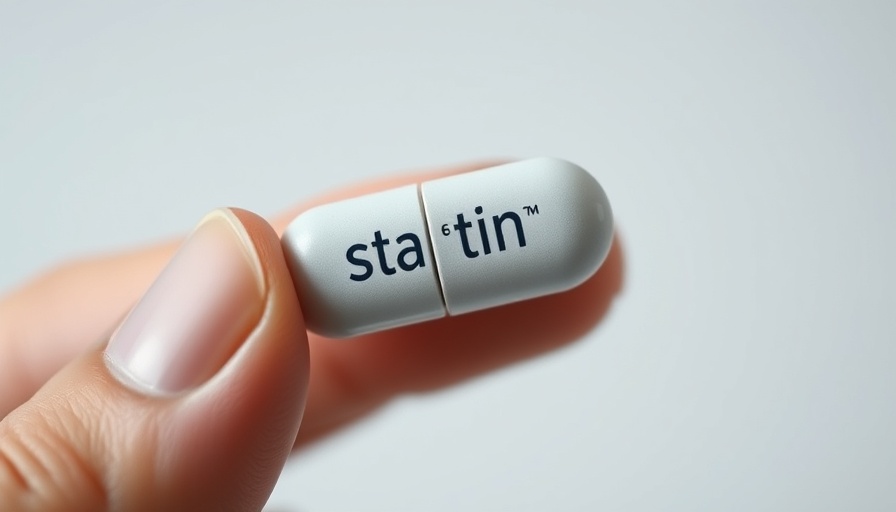
Understanding the Disconnect Between Trials and Everyday Experiences
Statins have been proven effective in lowering levels of LDL-C (bad cholesterol), which is crucial in combating cardiovascular disease—an ongoing leading cause of death worldwide. However, clinical trials report low side effects, while real-world experiences reveal a stark contrast. Many individuals stop taking statins due to muscle pain, a significant factor contributing to adherence challenges. Studies suggest that up to 80% of patients may not follow treatment recommendations, with muscle pain cited as the primary reason for cessation. This raises an important question: why do so many people experience these adverse effects?
The Complexity of Statin-Related Muscle Pain
Research indicates that muscle pain related to statin use—termed statin-associated muscle symptoms (SAMS)—is the most common side effect, impacting up to 72% of those who take statins. Interestingly, while coenzyme Q10 supplements have been suggested as a remedy, evidence reveals they may offer little relief. Even more perplexing is the psychosocial aspect of statin intolerance. Some studies imply that muscle pain might be a result of psychological perceptions rather than a direct pharmacological reaction. This phenomenon challenges traditional views, suggesting that the 'nocebo effect'—where negative effects occur due to the expectation of side effects—might be at play.
The Nocebo Effect: A Hidden Barrier
Studies demonstrate that patients might not even distinguish between actual side effects and placebo effects when they are unaware of their medication status. Remarkably, in trials where patients unknowingly received statins, fewer reported muscle pain compared to when they were aware they were taking the medication. The conclusion? Knowledge about treatment can, counter-intuitively, exacerbate perceived side effects, complicating the patient’s experience. This insight could encourage a shift in physician-patient conversations, focusing on comfort and clarity about treatment plans.
Moving Forward with Confidence
As more patients voice concerns about statin use, physicians can play a pivotal role by emphasizing that many side effects associated with statin use are not necessarily linked to the medication itself. Educating patients about the nocebo effect may foster adherence and enhance treatment outcomes. In an era of heightened health awareness, combating misinformation about statins through open dialogue can empower patients to maintain heart health effectively. Embracing this knowledge is vital to reducing fears and fostering better health practices.
 Add Row
Add Row  Add
Add 




 Add Row
Add Row  Add
Add 

Write A Comment